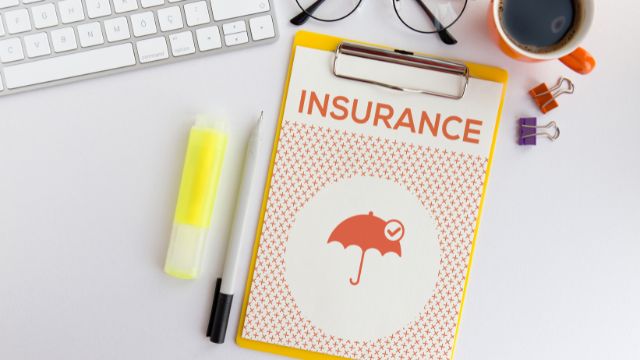Experts believe that term insurance is the best approach to financially securing the dependent family in the event of the key earner’s early death. Despite the fact that half of India’s working population is self-employed, only 20% of them have term insurance for self employed. If you are self-employed, an entrepreneur, or a professional, this article is for you where you can learn how to buy term insurance for yourself.
But, why buying term life insurance is so important?

First and foremost, let us discuss why India’s self-employed working population and, by extension, their families face more financial risks than salaried employees and, as a result, urgently require term life insurance.
1. Uneven source of income: While you’re investing and developing your company multiple times, many entrepreneurs take little cash home. Savings and investments are sacrificed in the short term for the enormous stash of gold at the end of the tunnel. While there is a good possibility you have maintained a financial backup for rainy days, it is equally important that you provide enough financial insurance-backed security for your family through a term life insurance.
2. Business liabilities: In addition to the household liabilities that a salaried individual has, an entrepreneur may be personally liable for debts and liabilities incurred while operating the company. At different stages of its growth, your company’s responsibilities may differ. If your business is in its early stages and you may have significant liabilities in the form of long-term loans for expanding your business or working capital financing such as securing raw materials, it is critical to have term insurance for self employed to ensure that your family is not burdened with such large loans if tragedy strikes.
How do I buy term insurance?
Now that we’ve covered the significance of a term life insurance plan, let’s take a quick look at a few key points to bear in mind when selecting and purchasing term insurance for a self-employed individual.
1. Choose Adequate sum assured: Before purchasing a term life insurance plan, make sure that you select an adequate cover in the form of sum assured in your term insurance for self employed. The primary goal of term insurance is to protect the family from financial difficulties. Most people have goals such as their children’s education and marriage, paying off their mortgage, saving for retirement, and so on. Your sum assured should be equal to all of your existing loans, liabilities, and costs necessary to maintain your current lifestyle and achieve life goals such as your children’s education, marriage, and retirement. When deciding on life insurance coverage, self-employed individuals should aim for at least 10 to 15 times their actual yearly income.
2. Policy term: As a self-employed person, you will undoubtedly work more hours than a salaried worker. There are two approaches to answering the question of tenure. One, estimate the age till which you are likely to work and earn an active income. You should buy term insurance for about 30 years after the birth of your youngest child. Your children are likely to have settled by then, and your savings should be sufficient to cover your spouse’s retirement.
On average, a salaried individual works until the age of 60. A self-employed person would work for perhaps another ten years. Make sure you look for a plan that will cover you until you are at least 85 years old.
3. Premium payment term: Since salaried people have a consistent source of income, a regular premium payment option is ideal for them. Self-employed individuals, on the other hand, should pay off all premiums as soon as possible by choosing the limited premium payment terms. This option allows one to pay for the entire policy term in only a few years and be worry-free.
4. Declarations and medical tests: When purchasing a term life insurance plan, make sure to fill out the proposal form with accurate information about yourself. You should take the medical tests as mandated by the insurer. Make a comprehensive and upfront declaration about any medical problem you have. This ensures that the insurer is fully aware of your medical status and that you have not withheld any information regarding your health or pre-existing disorders. This will also benefit your loved ones when the claim is filed ensuring your claim is not rejected.
5. Financial underwriting: This is one of the most important steps in the term insurance application process for self-employed individuals, as many applications are rejected in this step. Insurers typically require more paperwork to assess a self-employed individual’s financial situation before giving term life insurance coverage, much as they do with long-term loans. You must submit your income tax return, as well as income computations and bank statements from the previous three years.
Alternative cover eligibility documents: Insurers have recognized the constraint of a lack of high coverage and have recently begun selling term insurance for self employed on various documents other than ITR to self-employed individuals in order to increase their eligibility.
Some of the available possibilities are as follows:
A. Based on annual income calculations:
– Multiply your car’s ex-showroom price.
– Multiply the monthly SIP in mutual funds.
– Use a multiple of your credit card limit.
– Multiply your home loan’s monthly EMI.
B. Based on asset ownership calculations:
– Sum assured eligibility of 50% of the value of the house/shop you own, up to a maximum of Rs 2 crore.
– The sum assured is 1.5 times the value of your mutual fund/fixed deposit/portfolio statements.
While owning a business has several challenges, purchasing a term insurance for self employed eliminates the chance of leaving unaddressed tasks and liabilities for one’s family. A term insurance plan is intended for everyone, whether salaried or self-employed. It provides a safety net for family members while you are away.
So we are saying,
Term insurance comes into effect when you are not present. Make sure your nominee is aware of the term cover you have purchased. Another aspect self-employed should remember is The premium rate should not be your major consideration when selecting a policy. Conduct an in-depth look of insurance plans, taking into account factors such as claim settlement ratio, policy flexibility, and additional perks.

